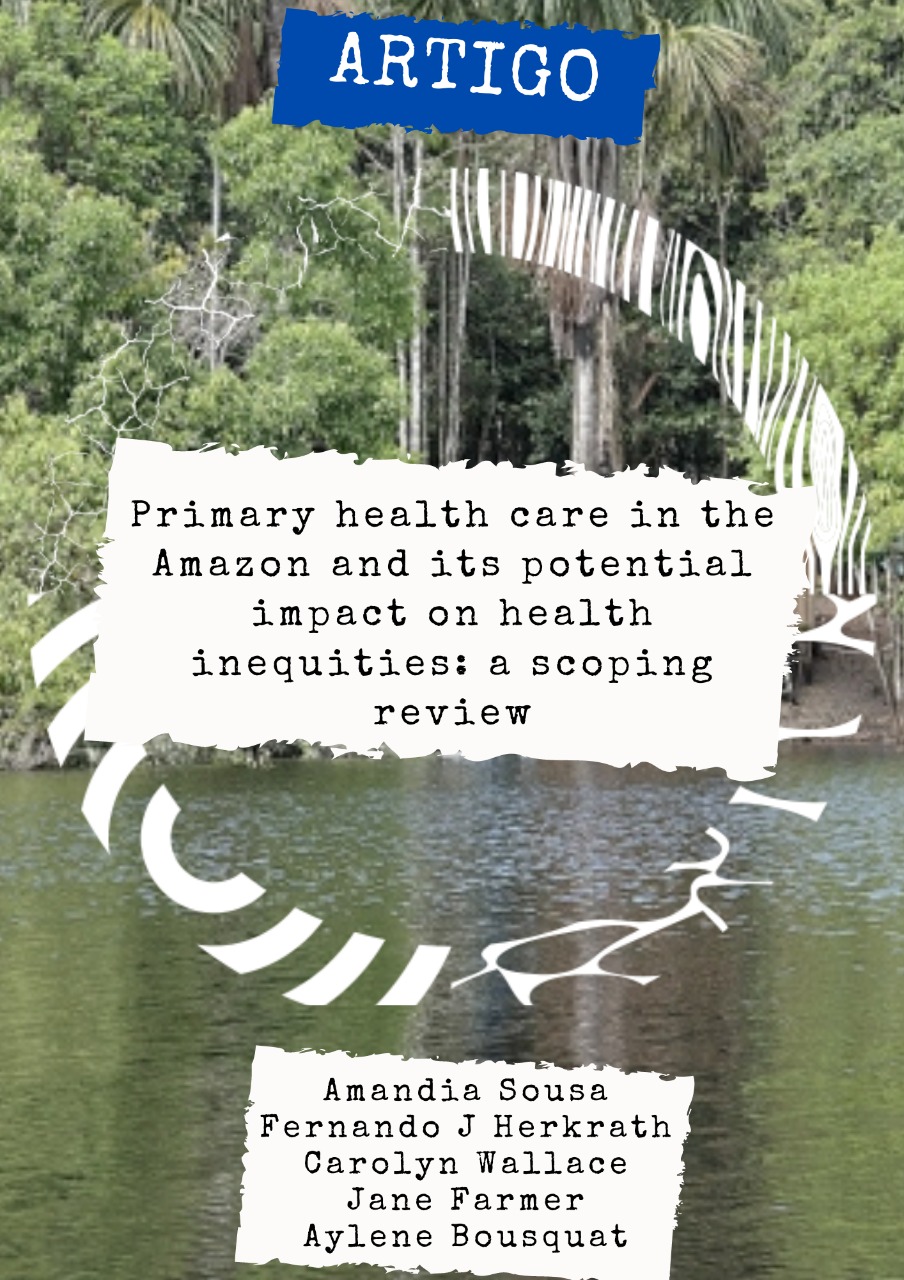Primary health care in the Amazon and its potential impact on health inequities: a scoping review
Introduction: Health studies of the Amazon often focus on diseases and infections prevalent in the region, and few studies address health organizations and services. In this sense, this study fills a gap by reviewing the studies aimed at primary healthcare (PHC) implementation in the nine Amazonian countries. This review addresses a need to explore the forms in which PHC is implemented in the Amazon areas outside the urban centers and its potential to reduce health inequities. This study contributes to improvements in the practices of managers and health professionals and research on the topic.
Methods: Scoping review methodology was applied to peer-reviewed articles. The databases searched were PubMed, Scopus, Lilacs, Embase and Web of Science. Selected studies included peer-reviewed publications, published between January 2000 and November 2019, that focused on PHC or one of its components in the Amazon, and were published in English, Spanish and Portuguese. The study used Arksey and O’Malley’s scoping review guidelines, supported by Levac, and included five steps: (i) identification phase, where search queries were applied to the databases followed by the removal of duplicates; (ii) screening phase, where titles and abstracts of articles were screened to exclude irrelevant articles; (iii) eligibility phase, where the full texts of articles were read to assess their relevancy to this study; (iv) data extraction, using a spreadsheet designed to capture relevant information required in this review, using an iterative process; (v) summarizing and classification of each article according to content. The second and third phases were conducted independently by two reviewers. If a disagreement arose between the reviewers, a third reviewer was consulted to help decide whether to include or exclude a study.
Results: This review included 25 studies. Of these, 11 presented promising results regarding PHC functioning in the Amazon region, and 14 presented challenges and difficulties in its functioning. Some PHC strategies implemented in the Amazon showed the potential to reduce inequities, mostly when they involved actions that increased access to PHC in the region when they developed a culturally adapted role and engaged community members in the decision-making and in the collaborative construction of health services. Actions that exposed challenges and difficulties were related to ill-prepared healthcare professionals, inadequate service approach and the inability to adapt to cultural issues.
Conclusion: The findings reveal information about PHC implementations that have had promising results in the Amazon region and, at the same time, show the challenges and difficulties of the PHC actions. The findings also highlight and synthesize knowledge about the potential that PHC strategies have to affect existing inequities in the Amazon region and gaps in the studies that have been undertaken, or at least published, including a lack of studies of PHC implementation and examination of strategies aimed at health determinants.
Keywords: Amazon region, health equity, health services research, primary health care, public health, rural health services.
Acesse o artigo completo clicando aqui

